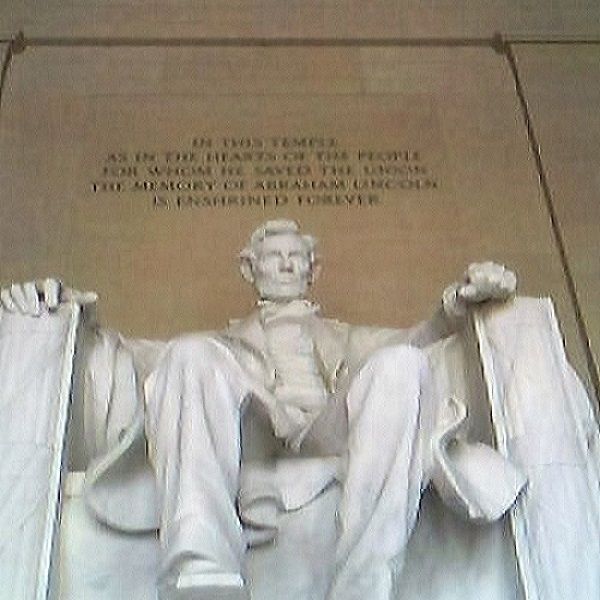
|
||||
| There are a number of issues over which the United States and Europe generally disagree. |
|
When you stand there in front of him, he's truly looking at you with the right hand relaxed and the left hand closed: |
|
| Browse the Constitution Annotated
First Amendment Fundamental Freedoms
Congress shall make no law respecting an establishment of religion, or prohibiting the |
. |
The U.S. Constitution was signed September 17, 1787, recognizing all who are born in the U.S. or by naturalization, have become citizens. |
| Brief history (early colonization (English settlement) and immigration) | dashboard | elections (2024) | THE DE-ENLIGHTENING OF AMERICA: THE ONSET OF SYSTEMIC NATIONAL DYSPHORIA | A Credible Grand Strategy: the Urgent Need to set Priorities | USA in turmoil | the Supreme Court | A concise overview of United States foreign policy | the White House | Aspen Ideas Festival | DEMOCRACY TODAY IN THE USA | ECONOMY | the Atlantic Festival | transatlantic relations (incl. brochure The U.S. in Europe and Europeans in the U.S. , Feb. 2025) |
|  |
 |
 |
the annual ecumenical service
on Thanksgiving Day <- |
The American Revolutionary War fought by the Thirteen Colonies against the British Empire was the first successful war of independence by a non-European entity against a European power in modern history. Americans had developed an ideology of "republicanism", asserting that government rested on the will of the people as expressed in their local legislatures. They demanded their "rights as Englishmen" and "no taxation without representation". The British insisted on administering the empire through Parliament, and the conflict escalated into war.
|
,_by_John_Trumbull.jpg) |
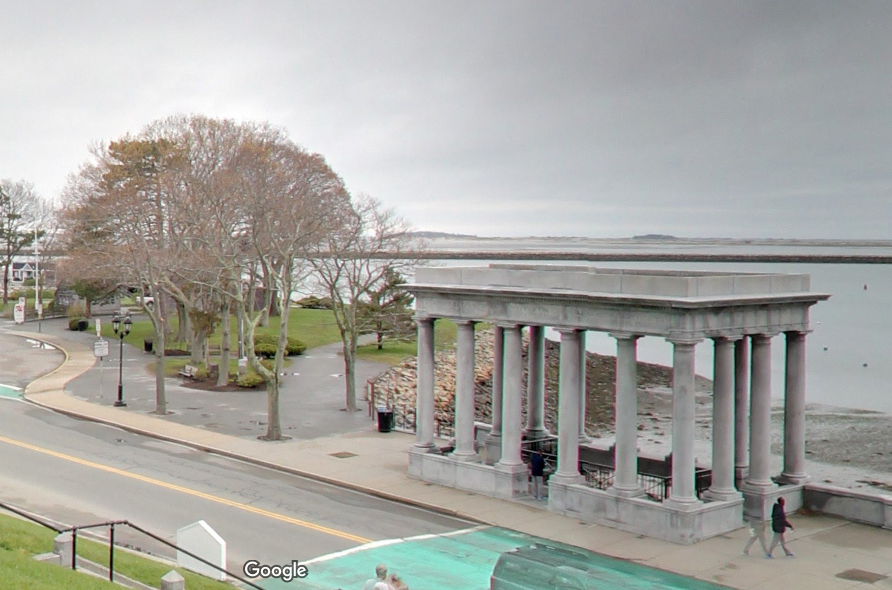
|
In 1774, the First Continental Congress passed the Continental Association, which mandated a colony-wide boycott of British goods. The Second Continental Congress, an assembly representing the United Colonies, unanimously adopted the Declaration of Independence on July 4, 1776 (annually celebrated as Independence Day). In 1781, the Articles of Confederation and Perpetual Union established a decentralized government that operated until 1789.
The early relationship between Europe and America was based on colonialism and settlement. All modern states in the Americas were founded by European peoples and are very different from the pre-Columbian civilizations that existed there before. Even after the United States (and later Canada) became independent, the main relationship between the two continents was one-way migration (FENIX Rotterdam and Ellis Island). The Netherlands was the first country to recognize the independence of the United States of America. In 1782, John Adams, the second president of the United States, was received by the States-General in The Hague as Minister Plenipotentiary of the United States of America. On that same day, John Adams bought a house in The Hague, which became the first American Embassy in the world. The bonds that connect the American and Dutch peoples, is commemorated in various ways and at various levels. The Dutch-American Friendship Day, which officially started on April 19, 1982 at the initiative of Ronald Reagan and is celebrated every year, is one of them. |
Marquis de La Fayette (6 September 1757 – 20 May 1834), known in the United States as Lafayette, was a French nobleman and military officer who volunteered to join the Continental Army, led by General George Washington, in the American Revolutionary War.
In 1824, the United States was in the throes of a very contentious national Presidential election. The country was divided and in turmoil. President James Monroe thought it would be a good idea to bring back the last living American General from the Revolutionary War for a short tour of popular cities as a way to celebrate the nation’s 50th anniversary and reignite its patriotism. At the time, many U.S. citizens knew that Lafayette had been involved in other revolutions in Europe and South America. In fact, he had been imprisoned for over 5 years as a result of the French Revolution. During and after the American Revolution, Lafayette strongly supported human rights for all, especially religious freedom and equality for women. Politically the United States held aloof from European affairs, and Canada was subordinate to British foreign policy. During the First World War however both North America states found themselves fighting in Europe and engrossed in European politics. President Wilson's Fourteen Points helped to redraw the map of Europe. After the war the League of Nations was supposed to create a lasting link across the Atlantic but the United States refused to join. |
Both the inspiration of the song "We Shall Overcome Some Day" and Dr. King's, Jr. (MLK) idea of volunteering and improving communities have not lost their relevance and are still used today in social justice movements around the world.
Every year on the 3rd Monday of January, there is a tribute on "MLK Day", not only in the U.S., but also in The Netherlands with a touching program, including Pastor Harcourt Klinefelter (1938) the former press officer of Martin Luther King. The United States also refused to become involved in the Second World War until attacked in the Pacific. Once involved, however, the US became pivotal to the war effort and therefore European politics. After the second war the United States and Canada both desired a premenent role in the defence of Europe, and European states wanted protection from the Soviet Union. The result was the North Atlantic Treaty Organization, which became the lynchpin of Transatlantic relations during the Cold War The Cold War greatly affected the transatlantic relations of the time. A resolved issue is the issue of the U.S. in 2002 imposed steel tariffs to protect its steel industry. The European Union and other countries took up the issue with the WTO, which ruled that such tariffs breach its regulations. Subsequently, by December 2003, the tariffs had been lifted by the U.S. administration. Some of the of the issues over which the United States and Europe generally disagree are cultural, such as the U.S. use of death penalty, some are international issues such as the Middle East peace process, and many others are trade related. The current U.S. policies are often described as being unilateral in nature, whereas the European Union and Canada often take a more multilateral approach, relying more on the United Nations and other international institutions to help solve issues. Of course, there are many other issues upon which they do agree, such as on cooperation in security and counterterrorism. Many organizations and institutions across Europe are constantly involved in order to resolve issues and differences. In the present era, the U.S. also aims try to get closer to the EU concerning financial regulation and in terms of harmonizing digital processes and procedures. |
| DASHBOARD |
| ELECTIONS (2024) |
 |
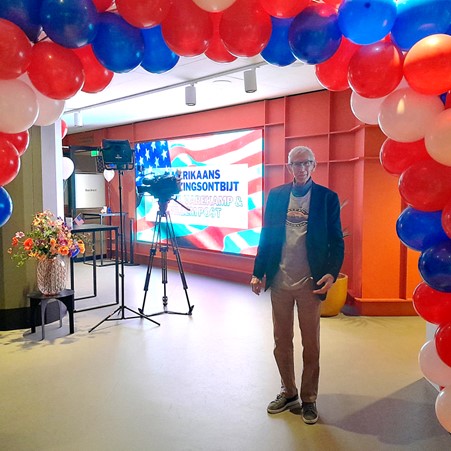 |
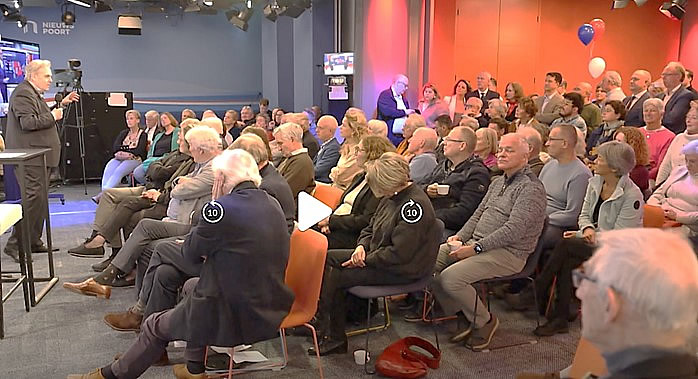 |
6 November 2024, from 07:00 in the morning, an American Election Breakfast took place in the Netherlands. More than 400 interested people came to share the latest election news from America with each other. The news was followed on large screens and renowned America expert Willem Post, together with various politicians, took the audience along in interpreting and analyzing the results. Internationally acclaimed jazz musician Michael Varekamp and his band performed with the special program Music & The White House. |
|
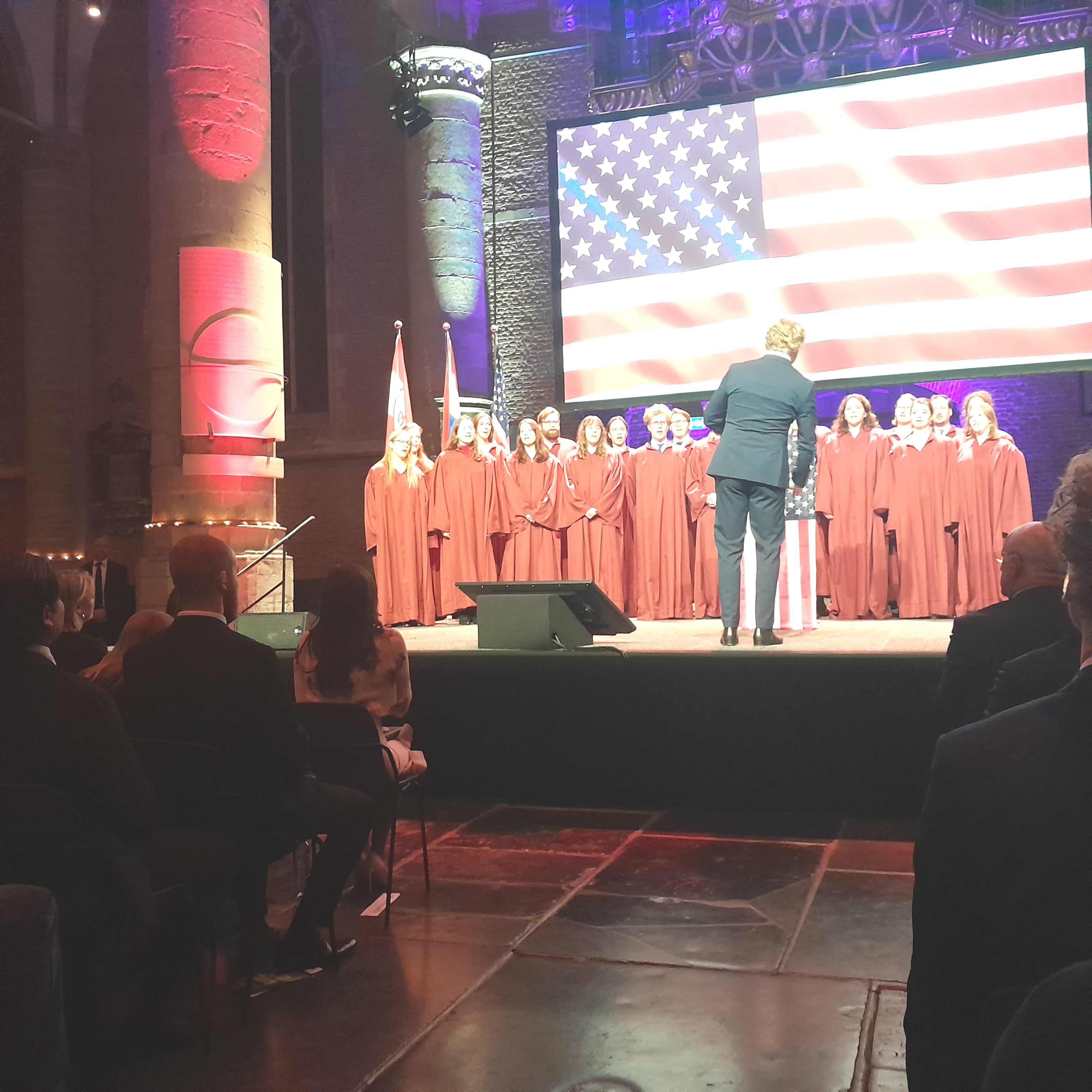 |
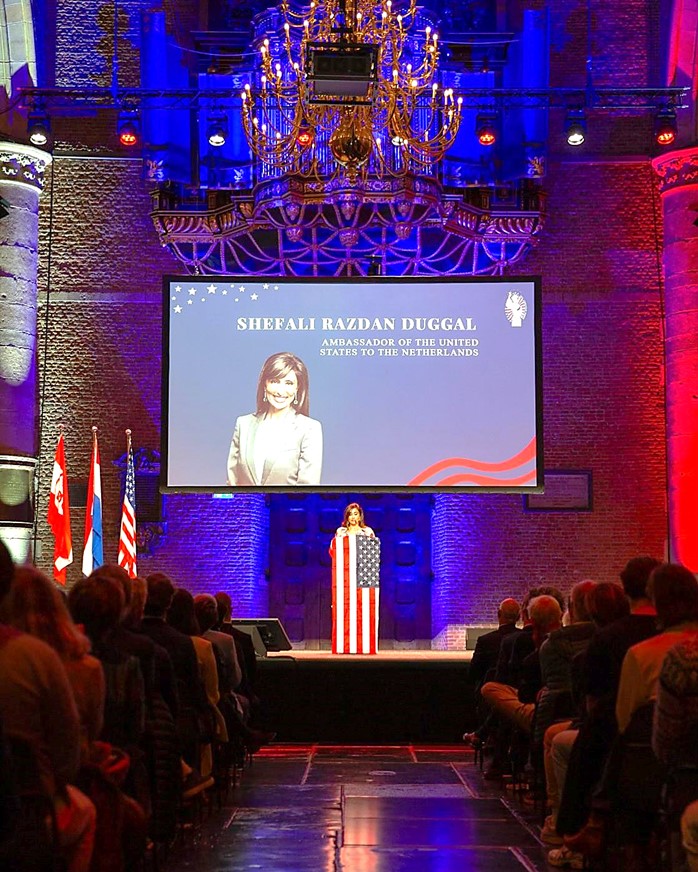 |
Musicand the White House
(April 2024)
Current discontent in the US has roots in history. Michael Varekamp with his band and America expert Willem Post responded to the current presidential election battle and American history with music and short stories and points of contention from then and now. |
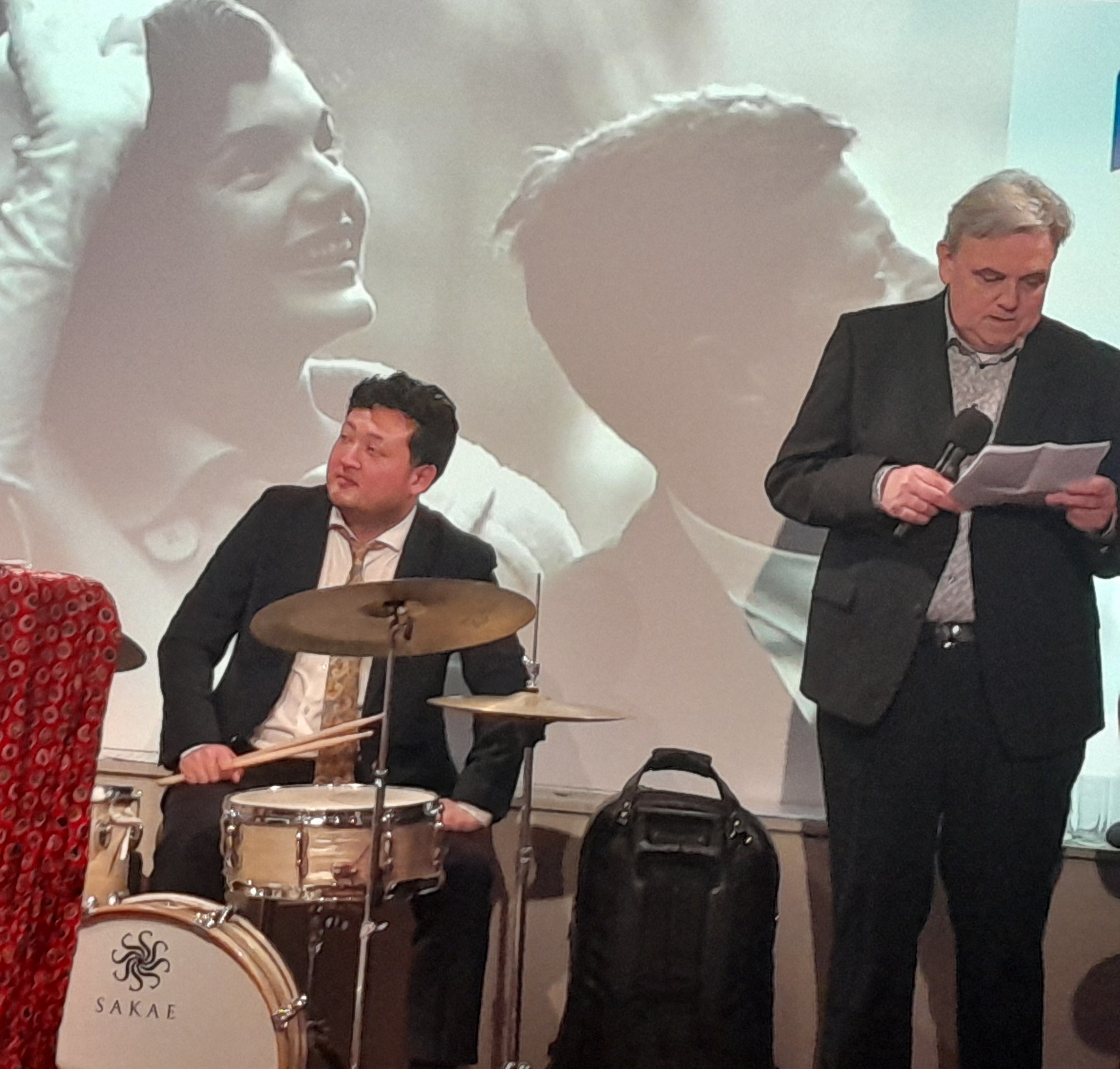 |
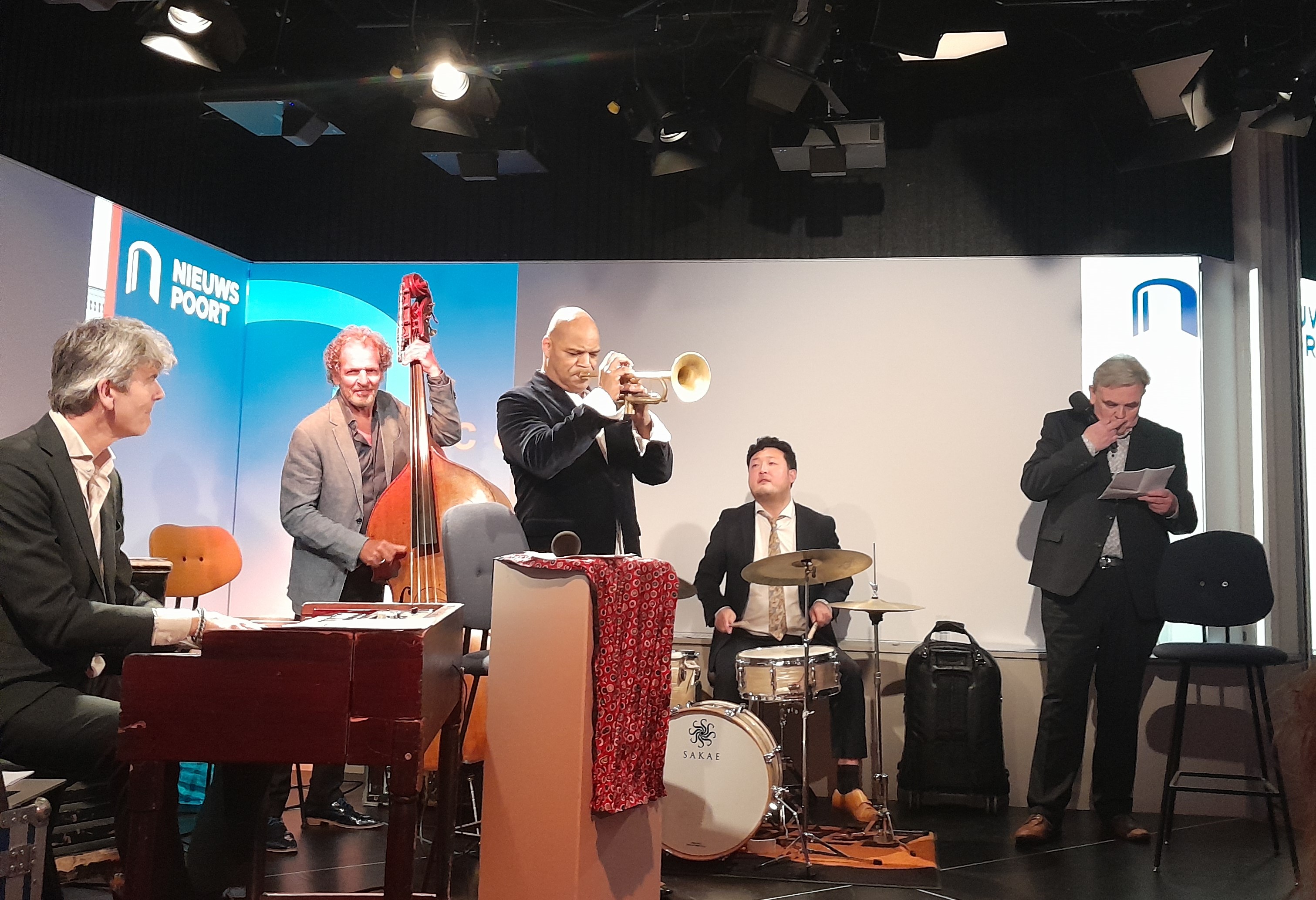 |
|
|
|
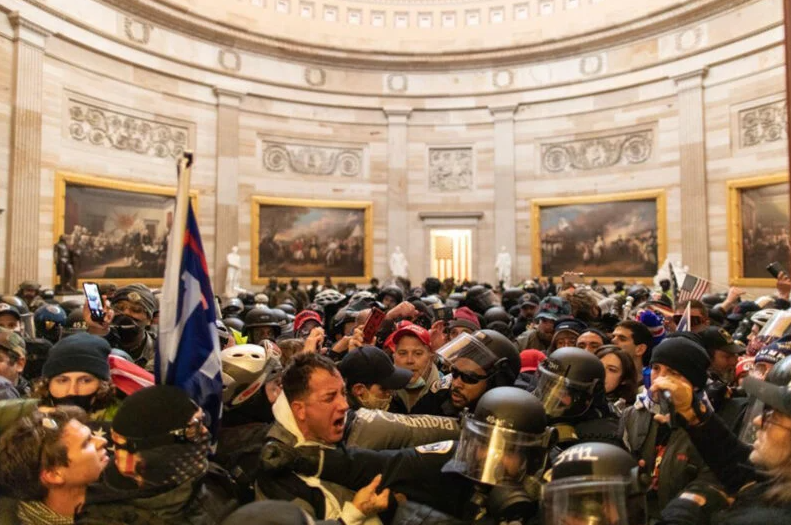 |
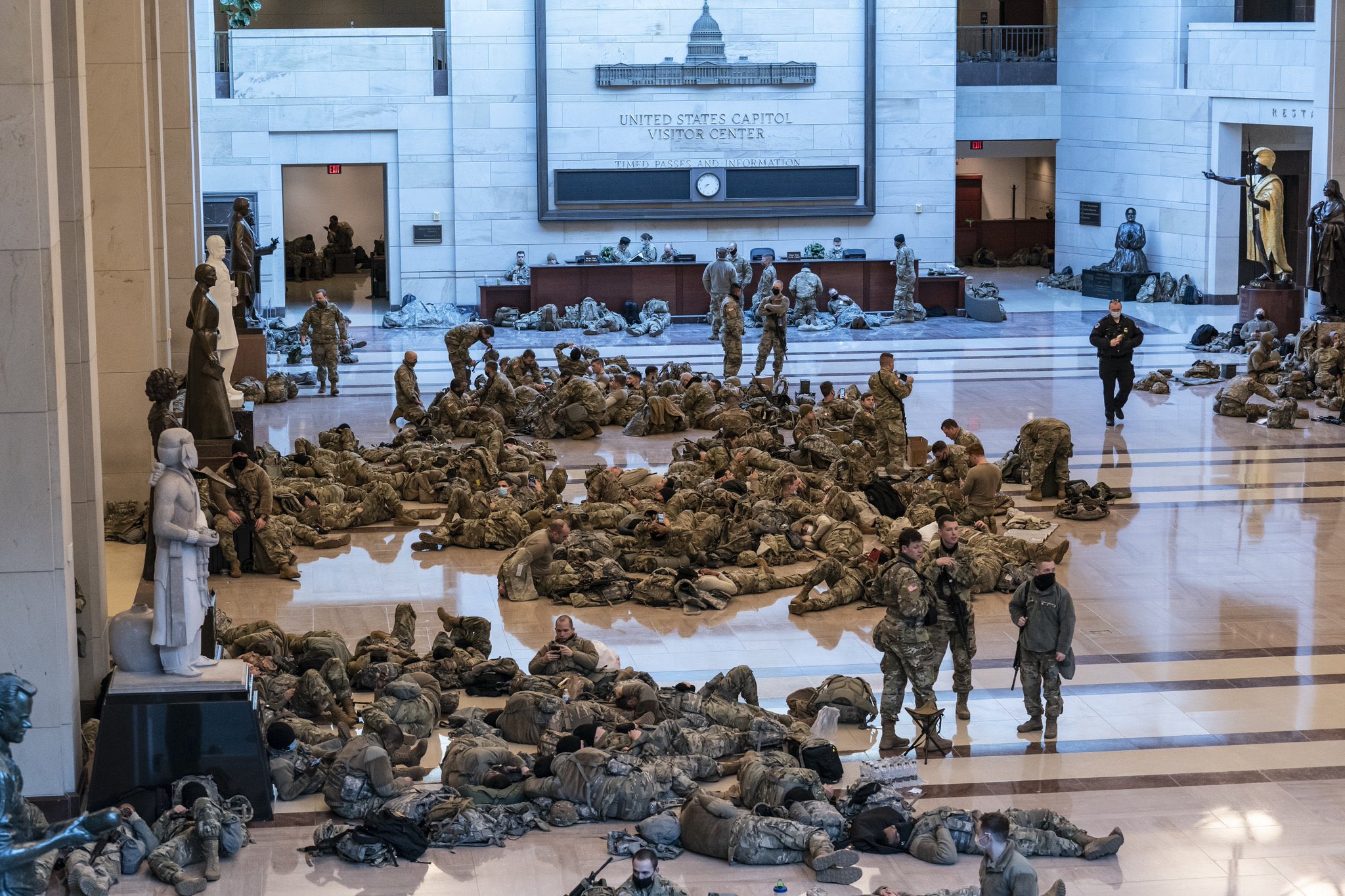 |
Capitol-riot 2021-01-06, Police intervene as supporters of
|
The Truth About Trump's Mob, Jeffrey D. Sachs, January 8, 2021, Project Syndicate NEW YORK – The storming of the US Capitol on January 6 is easily misunderstood. Shaken by the ordeal, members of Congress have issued statements explaining that America is a nation of laws, not mobs. The implication is that the disruption incited by President Donald Trump is something new. It is not. The United States has a long history of mob violence stoked by white politicians in the service of rich white Americans. What was unusual this time is that the white mob turned on the white politicians, rather than the people of color who are usually the victims. Of course, the circumstance of this rioting is crucial. The aim was to intimidate Congress into stopping the peaceful transition of power. This is sedition, and in stoking it, Trump has committed a capital offense. In the past, such mob violence has been aimed at more traditional targets of white hate: African-Americans trying to vote or desegregate buses, housing, lunch counters, and schools; Native Americans trying to protect their hunting lands and natural resources; Mexican farmworkers demanding occupational safety; the Chinese immigrant laborers who previously built the railways and worked the mines. These groups were the targets of mob violence stoked by Americans from President Andrew Jackson and the frontiersman Kit Carson in the nineteenth century to Alabama Governor George Wallace in the twentieth. America's culture of white mob violence goes hand in hand with its gun culture. The hundreds of millions of privately owned firearms in the US disproportionately belong to whites; and as the historian Roxanne Dunbar-Ortiz points out powerfully in Loaded: A Disarming History of the Second Amendment, "gun rights" have long been invoked by vigilante white mobs to suppress blacks and Native Americans. Trump has done precisely this throughout his presidency, warning that without him in office, Americans will "have to learn to speak Chinese." At his rallies, he routinely champions the Second Amendment and rails against nonwhites, telling congresswomen of color to "go back" to the "totally broken and crime infested places from which they came." He has urged his followers to manhandle opposition demonstrators, and to throw them out – not just from his rallies, but from the country itself. He has praised white supremacists as "very fine people." After his Confederate-flag-waving mob stormed the Capitol, he said, "We love you, you're very special. The Republican Party fully backed Trump and his politics of incitement right up until the afternoon of January 6, when the mob swarmed the Capitol. But Republican leaders' fealty to Trump has not been driven merely by his hold on the party's base. Trump represents the essence of the American right. His assigned role has always been clear: to stack the judiciary, cut taxes for corporations and the rich, and push back against demands for social spending and environmental regulation, all while inciting the baying mob to fight "socialism." January 6 went awry because the white mob turned on the white politicians themselves. This was unacceptable, but not unpredictable. Trump has repeatedly told his followers that they are losing America; and the Republicans' loss of Georgia's two Senate seats to an African-American and a Jew doubtless added to the rage. Trump may have been unusually crude in his race-baiting, but his approach has been perfectly in keeping with that of the Republican Party at least since the party's "Southern strategy" in the 1968 election, in the wake of that decade's civil-rights legislation. Until last year, Trump was getting the job done for his party's plutocrat donors, bosses, and business allies. The 2020 election was his to lose – and lose it he did. But the reason was not that he was too racist toward people of color; it was that he was overwhelmingly malevolent and incompetent in the face of a killer pandemic. In the grand sweep of history, America is indeed turning the corner on its past of racism and white mob violence. Barack Obama was elected to the presidency twice, and when Trump won in 2016, he received fewer votes than his opponent. Between Kamala Harris's election as vice president and Georgia's Senate elections this week, there is strong evidence to show that America is gradually shifting away from white oligarchic rule. By 2045, non-Hispanic whites will constitute only around half of the population, down from around 83% in 1970. After that, America will become a "majority-minority" country, with non-Hispanic whites accounting for around 44% of the population by 2060. For good reason, younger Americans are more cognizant of racism than previous generations were. The Trumpian virulence on display at the Capitol may have been dismaying. But it should be seen as a desperate, pathetic last gasp. Fortunately, the America of racist white rule is receding, if still far too slowly, into history. |
The US end of May, 2020 (after less than three years the Charlottesville rally):
Violence has erupted in cities across the US on the sixth night of protests sparked by the death in police custody of African-American George Floyd. Curfews have been imposed in nearly 40 cities, but people have largely ignored them, leading to tense stand-offs. There are unconfirmed rumors of five deaths because of the rioting and clashes. Riot police clashed with protesters in New York, Chicago, Philadelphia and Los Angeles, firing tear gas and pepper bullets to try to disperse the crowds. Police vehicles were set on fire and shops were looted in several cities. The National Guard - the US reserve military force for domestic emergencies - said on Sunday that 5,000 of its personnel had been activated in 15 states and Washington, DC, where crowds once again gathered near the White House, this time lighting fires and throwing stones at riot officers. “State and local law enforcement agencies remain responsible for security,” the National Guard added. It has emerged that in Friday night's unrest, President Donald Trump was briefly taken by the secret service into an underground bunker at the White House, for his safety. The US is witnessing the most widespread racial turbulence and civil unrest since the violent backlash to the assassination of Martin Luther King in 1968, says the BBC's Nick Bryant. More than 75 cities have seen protests, with streets only days ago deserted because of coronavirus, thronged with demonstrators marching shoulder to shoulder. The Floyd case has reignited anger over police killings of black Americans. For many, the outrage also reflects years of frustration over socio-economic inequality and segregation, not least in Minneapolis itself, where George Floyd died. There were many instances of police vehicles being vandalized and set alight on Sunday. Riot officers continued to respond with tear gas and flash grenades. In Philadelphia, local TV stations showed people smashing police cars and looting at least one store. |
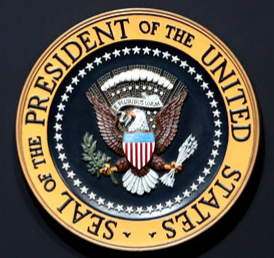
|
| Mr Trump tweeted: “law & Order in Philadelphia NOW!”, They are looting stores. Call in our great National Guard.“ Looting was also reported in Santa Monica, California. In Minneapolis, a lorry driver was arrested after reportedly breaching a road barrier before speeding towards a crowd of protesters marching along a major motorway. Footage posted on social media showed dozens of people surrounding the vehicle and pulling the driver out from behind the wheel after it came to a stop. The driver was later taken to hospital with minor injuries. There were no immediate reports of other casualties. Minnesota's Governor Tim Walz said the motive of the driver was unclear, adding: ”To not have tragedy and many deaths is simply an amazing thing.“ In Denver, thousands of people protested peacefully in Colorado State Capitol by lying face down with their hands behind their backs and chanting: ”I can't breathe” - a reference to the circumstances of Mr Floyd's death. Large-scale protests also took place in Atlanta, Boston, Miami and Oklahoma City. There were also several reported incidents of riot police responding disproportionately to the demonstrators. In Atlanta, Georgia, two officers were sacked on Sunday for using excessive force - including firing a taser - on two young college students. Hundreds of people have been arrested since the protests began a week ago. |
|
| I HAD TO WAIT for the United States presidential state car (nicknamed "The Beast", "Cadillac One", "First Car"; code named "Stagecoach" -> | 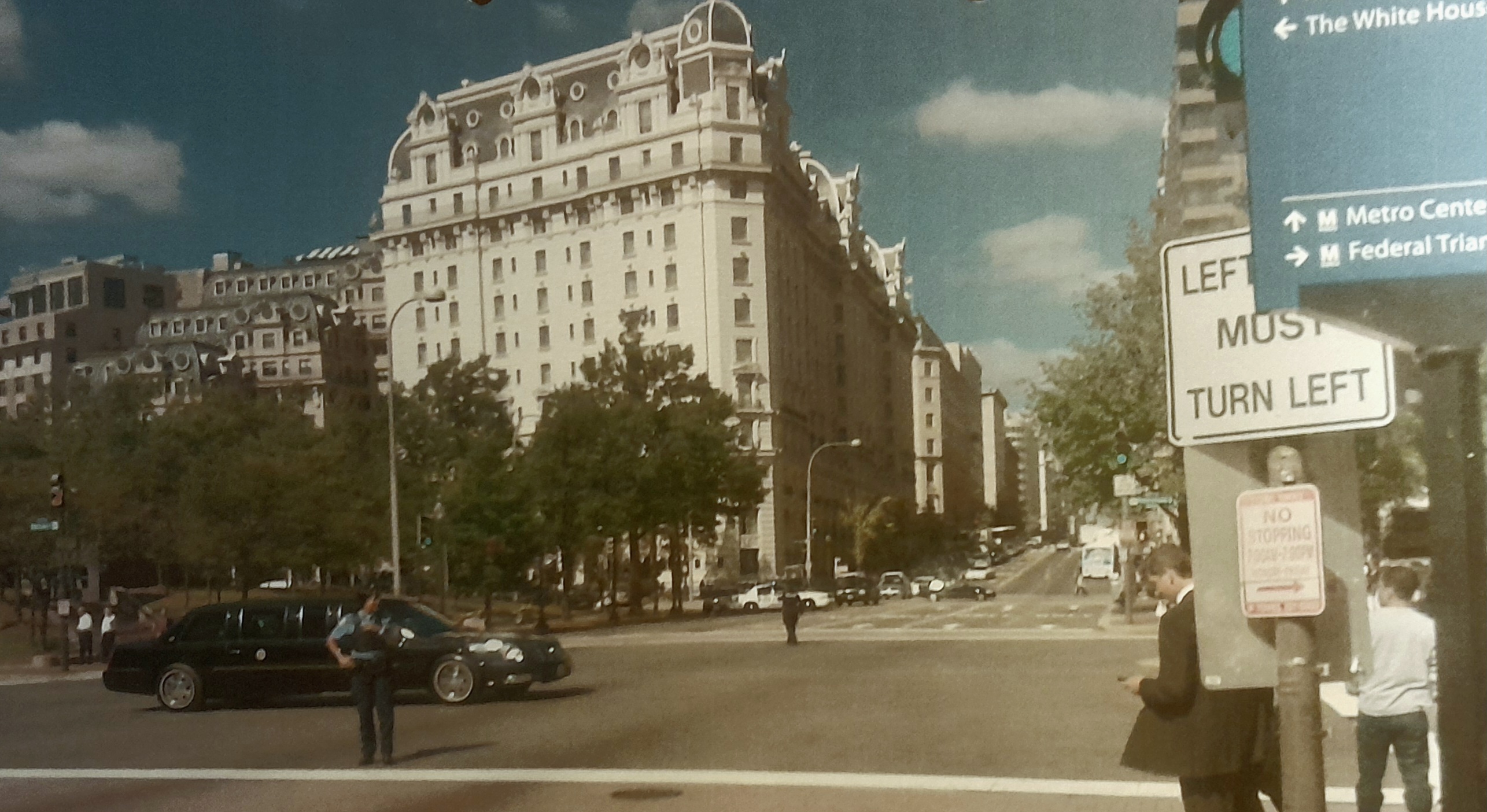 |
| THE SUPREME COURT |
The main entrance to the Supreme Court Building is on the west side, facing the United States Capitol. A few low steps lead up to the 252-foot-wide oval plaza in front of the building. Flanking these steps is a pair of marble candelabra with carved panels on their square bases depicting Justice, holding sword and scales, and The Three Fates, weaving the thread of life. On either side of the plaza are fountains, flagpoles, and benches.
The bronze flagpole bases are crested with symbolic designs of the scales and sword, the book, the mask and torch, the pen and mace, and the four elements: air, earth, fire, and water.
On either side of the main steps are seated marble figures. These large statues are the work of sculptor James Earle Fraser. On the left is a female figure, the Contemplation of Justice. On the right is a male figure, the Guardian or Authority of Law. |
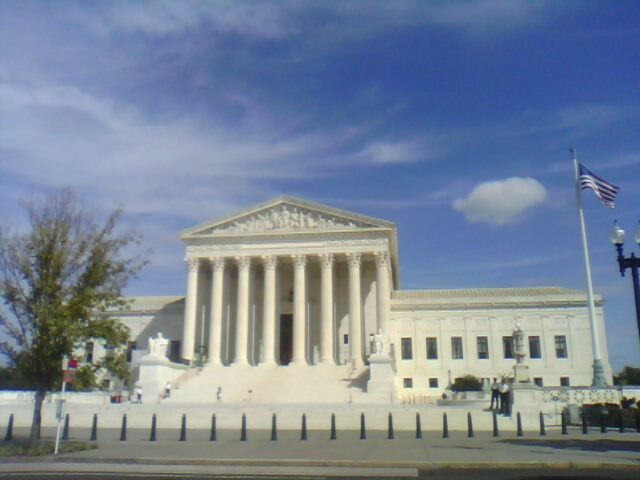 |
the female figure, Contemplation of Justice, to the left of the main steps as "a realistic conception of what I consider a heroic type of person with a head and body expressive of the beauty and intelligence of justice." A book of laws supports her left arm and a figure of blindfolded Justice is in her right hand -> |
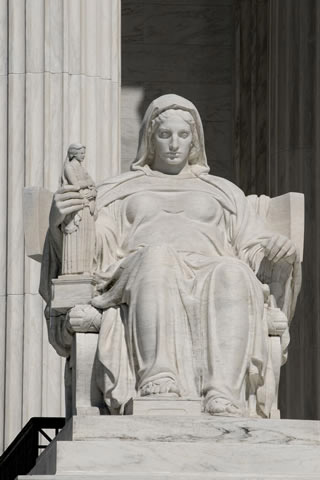 |
the male figure Authority of Law, also called the Guardian or Executor of Law is described as “powerful, erect, and vigilant. He waits with concentrated attention, holding in his left hand the tablet of laws, backed by the sheathed sword, symbolic of enforcement through law.” The Latin word for law, LEX, is inscribed on the tablet -> |
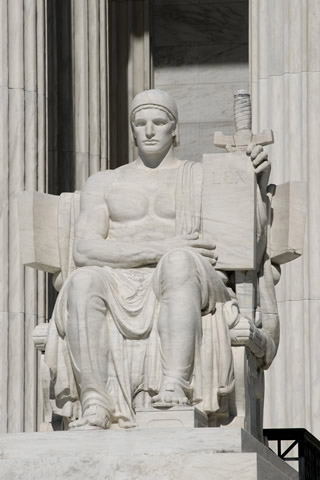 |
The Supreme Court of the United States is the highest federal court of the United States. Established pursuant to Article Three of the United States Constitution in 1789, it has ultimate (and largely discretionary) appellate jurisdiction over all federal courts and state court cases involving issues of federal law plus original jurisdiction over a small range of cases.
In the legal system of the United States, the Supreme Court is generally the final interpreter of federal law including the United States Constitution, but it may act only within the context of a case, in which it has jurisdiction. The Court does not have power to decide political questions, and its enforcement arm is in the executive rather than judicial branch of government. |
 |
The art of justice, 'An Apology for the Law' |
|
|
| A concise overview of United States foreign policy |
|
|
|
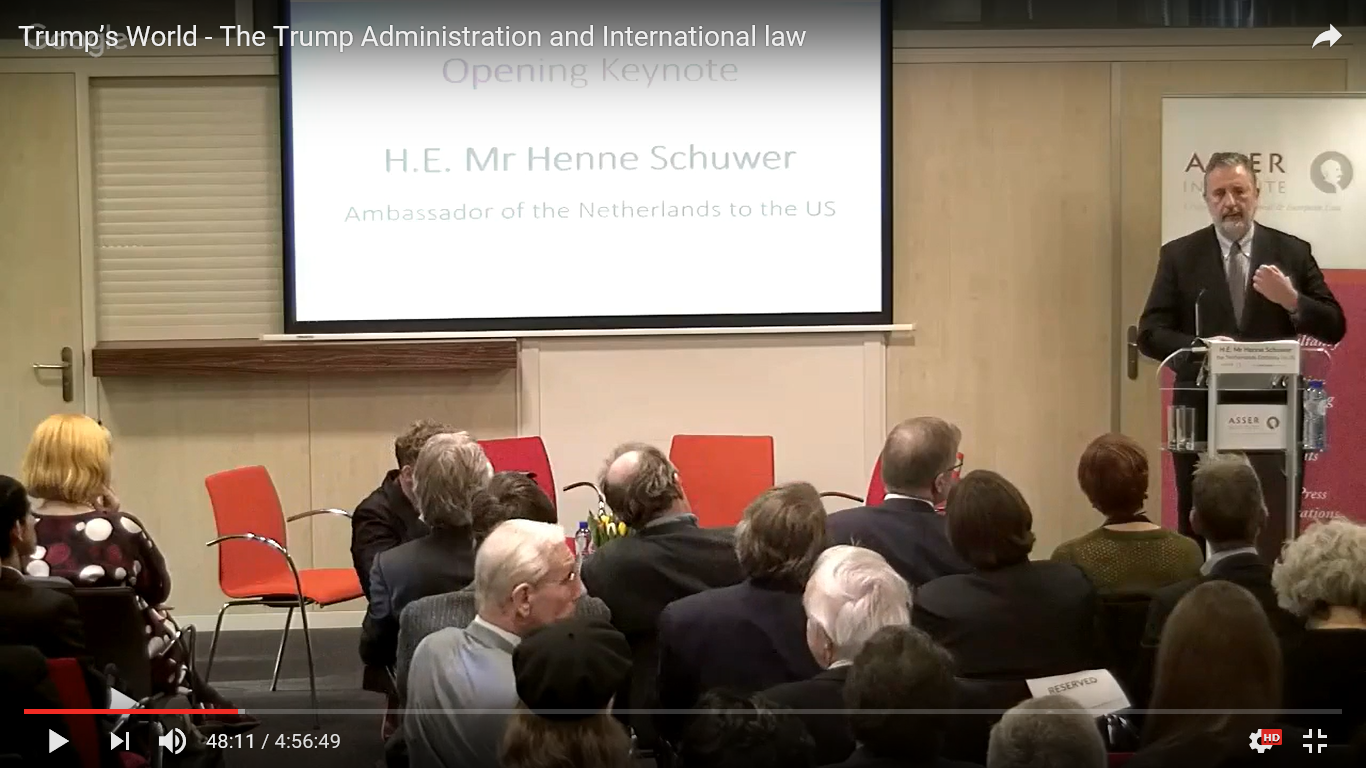 |
On Friday 20 January 2017, Donald Trump has been sworn in as 45th President of the United States of America. While it is impossible to predict the precise shape of President Trump’s foreign policy, the candidate and President-elect Trump made several statements about his vision of the US’ role and engagement with the World:
|
The Asser Institute organised a special event Friday, 27 January and discussed the foreign policy options available to the Trump Administration and to evaluate the potential consequences of President Trump’s positions for the international order at large. |
| CEPSIdeasLab 2019 "Will it be possible to find compromises in other areas as well, to re-establish the long standing transatlantic partnership?" |
Since the advent of the new US administration policy priorities seem to have diverged. The European side continues to emphasize the importance of cooperation and a rules-based global system. Tensions have emerged as the two sides seem far apart in terms of the need to combat climate change or to defend fundamental rights accross the globe. Moreover, Europe perceives China much less as a geopolitical competitor, and more as an important market. But the one area where the US and the EU seem in direct conflict is trade. A truce has been established, but will it last?
|
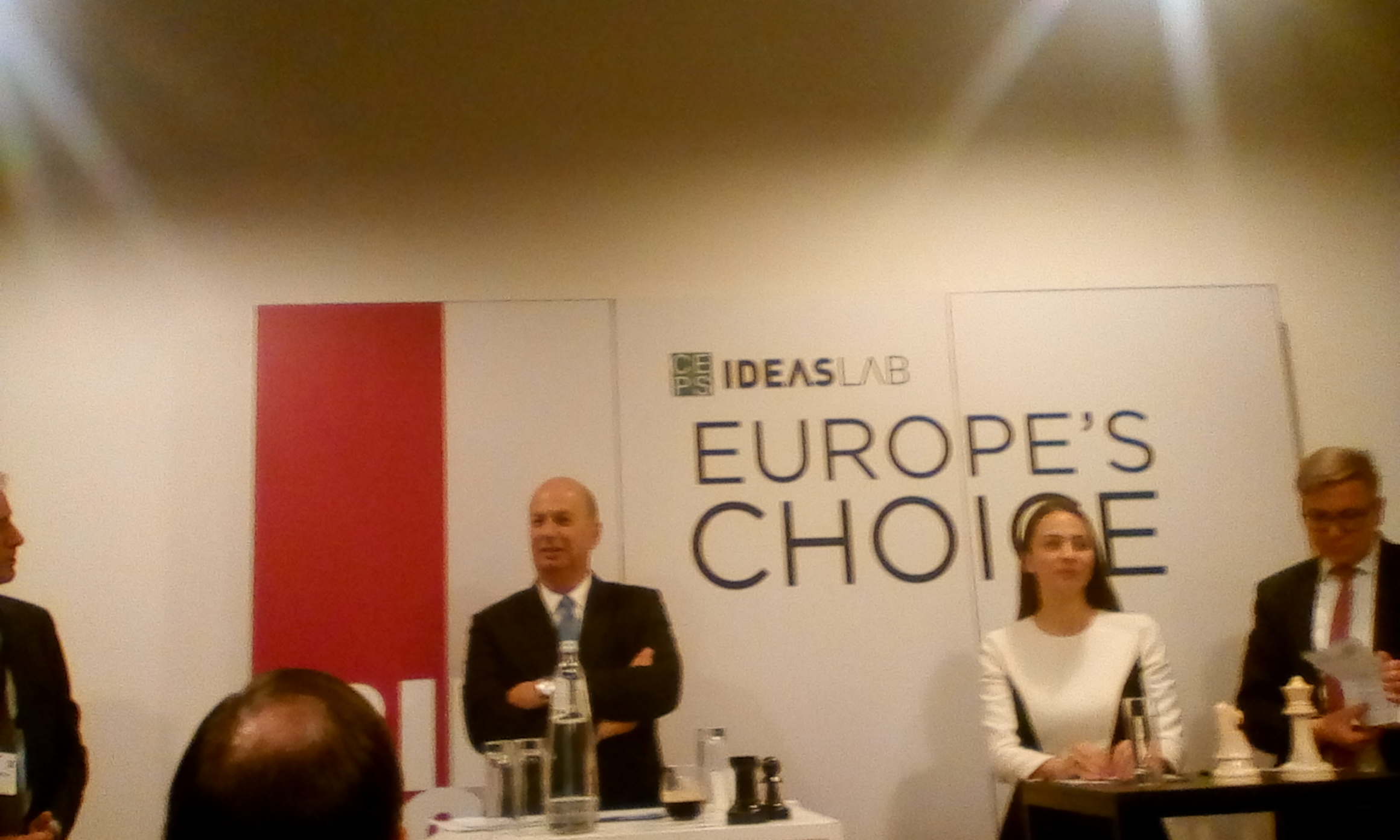 |
| The White House |
The White House has been the scene of many events in the history of the USA. Here the President holds meetings that decide national and international policy, sign s new legislation, and carries out the many duties of the office. Here too, the President and First Family entertain guests and live their private lives, as every President, except George Washington, has done. The White House stands for the power and statesmanship of the chief executive. |
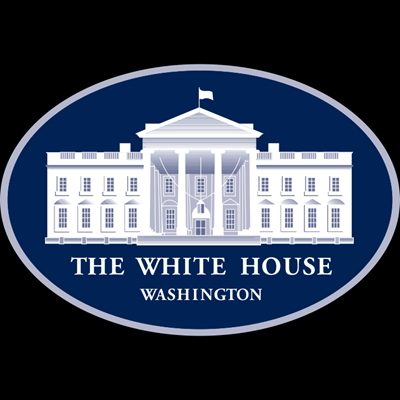 |
See the East Wing entrance, the Library, the East Room where John F. Kennedy's body lay at rest, the Green and Blue Room, the Cross and Entrance Hall, the Red Room and the State Dining Room |
| ECONOMY |
|
|
|
| The Aspen Ideas Festival |
|
| Transatlantic relations |
No more special relationships: Europe is wasting its "Obama Moment". Europe has the US president it wished for, but Barack Obama lacks the strong transatlantic partner he wants. As European Council on Foreign Relations analyst Nick Witney and Jeremy Shapiro from the Brookings Institution warn in ECFR's latest report, ‘Towards a post-American Europe: A Power Audit of EU-US Relations', national governments in the EU must shake off illusions about the transatlantic relationship if they want to avoid irrelevance on the global stage.
With EU leaders heading to Washington for their transatlantic summit on 3 November, Shapiro and Witney caution EU member states: an unsentimental President Obama has already lost patience with a Europe lacking coherence and purpose. In a post-American world, the United States knows it needs effective partners. If Europe cannot step up, the US will look for other privileged partners to do business with. ECFR's report from 2009, argues that:
|
 
|
The US would prefer a more united EU, but expects so little that it cannot bring itself to greatly care. When the EU is hard-headed, as with trade negotiations, the US listens. When it is not, Europeans are asking to be divided and ruled. Institutional fixes are not the answer. The solution is not more summits, forums and dialogues. Europeans need to decide what they want when it comes to Afghanistan, Russia and the Middle East peace process and approach Obama with clear objectives. The ‘hobbled giant' that is Europe needs to understand that both sides of the Atlantic will stand to gain from such a cultural shift. By many institutions, studies are conducted, lectures given and round table meetings held, not only to know how the US works and how to work with it, to order a wide agenda to secure a constructive role of the West in the future world, on stabilising Afghanistan and waging the war on terror to devise global solutions to the financial crisis and managing the rise or China and engaging India, and countering Iran to making NATO more flexible for global action, but also to remove barriers to trade and investments, to prevent default new barriers from emerging and to reduce regulatory compliance costs in order to complete the creation of the transatlantic market. |
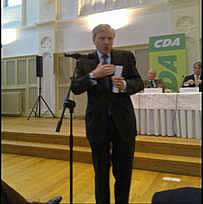 |
CONGRESS TRANS-ATLANTIC RELATIONS
The congress 27-01-2010 about Trans-Atlantic relations aimed to achieve unity of views about the common trans-Atlantic agenda for the EU and the US. Only a wide agenda can secure a constructive role of the West in the future world of changing thematic and geographical centres of gravity. It will become a heavy task to keep what western world cares for. For rising powers have other views about basis principles such as freedom, democracy and human rights than western countries. They look at responsible sovereignty in another way. But this powers demands nevertheless a bigger role and it is logic they will get that. After all, we need these rising powers in order to solve problems of today. |
The US is a strategic partner, but is not automatism or trans-Atlantic reflex. We share a philosophy of life: 'the continued expansion of our moral imagination; an insistence that there is something irreducible that we all share" freedom, democracy, justice and with respect to human rights. |
| TRANSATLANTIC RELATIONS 2009 (EPIN)
The new US administration most likely will reach out to its European partners on many global and bilateral issues. President-elect Barack Obama will most likely demand more substantive and increased contributions from the European allies to a multitude of key projects: from stabilising Afghanistan and waging the war on terror to devising global solutions to the financial crisis and managing the rise of China and engaging India, and from countering Iran to making NATO more flexible for global action. Based on surveys conducted in 15 member states and of the European Union as a whole, this paper explores what the EU and its individual member states expect from the United States in the post-Bush era. Individual case studies outline the concrete issues and fields of action that Europeans seek to address in the transatlantic format. |
| TRANSATLANTIC RELATIONS in 2009: A CHANCE for a FRESH START?
The initial versions of nearly all contributions to the first part of this publication saw the light of day during the international conference “Transatlantic Relations 2009 – A Chance for a Fresh Start?” held in Prague in May 2009. The conference was organised by the EUROPEUM Institute for European Policy within the framework of the Transatlantic Policy Forum project. The conference was organised in co-operation with Friedrich-Ebert-Stiftung, the Ministry of Foreign Aff airs of the Czech Republic and the American Centre in Prague. The organisers would like to thank all institutions involved in organising the conference for their generous support and smooth co-operation. The second part of this publication consists of policy papers, developed by leading EU and US experts in the framework of the Transatlantic Policy Forum project, focusing on the following issues: trade, energy and climate change, Democracy Promotion and EU Neighbourhood EUROPEUM prepared also essays and commentaries as part of an international conference held in Washington, DC on February 22nd - 24th, 2007, organised by the Woodrow Wilson International Center for Scholars, the Weidenfeld Institute of Strategic Dialogue, and the Europaeum. The conference was on Does the ‘West’ still exist? - America and Europe moving towards 2020. |
|
TRANSATLANTIC POLICY NETWORK
Tuesday 13-5-2008 at CEPS organised a meeting on the transatlantic economic relations: 'Innovation and Economic Leadership: Opportunities for Europe and the United States. April last year a new era for transatlantic economic integration was launched, TEC (Transatlantic Economic Council). Now there is the Transatlantic Policy Network (TPN) and a time schedule till 2015. Aim is to remove barriers between EU and US to trade and investments, to prevent new barriers from emerging and to reduce regulatory compliance costs in order to complete the creation of the transatlantic market and to achieve a Free Trade Agreement (FTA). The EU and the US together account for 50% of the world’s GDP and nearly a third of world trade flows. A planned trade agreement between the two trading blocs has excited the political and business classes alike, on both sides of the Atlantic. According to reports, an EU-US (FTA) could deliver a 2% boost in GDP for both parties. ast year alone, bilateral trade in goods and services was valued at €700 billion, according to European Commission data. In seeking to enhance the relationship between the EU and the US, the Transatlantic Economic Council was established in 2007, bringing together senior economic policy makers from the EU institutions and the US cabinet. Favourable rumblings from this powerful forum in June of 2012 have led spectators to declare it the opening gambit to a trade agreement likely to have broadly positive effects. Responding to the Council’s June report, US President Barack Obama assured a domestic and European audience “We are encouraged by the Report's analysis of the benefits of an ambitious and comprehensive market opening arrangement for agricultural and manufactured goods, services and investment, the identification of ways to promote compatible regulatory approaches, and tackle behind-the-border barriers, and possible approaches to intellectual property rights". |
The European Commission believes that the main obstacle will likely centre on non-tariff barriers, “consisting mainly of customs procedures and behind the border regulatory restrictions. The non-tariff barriers come from diverging regulatory systems (standards definitions notably), but also other non-tariff measures, such as those related to certain aspects of security or consumer protection. Agreement is not going to be easy and there are very divergent interests between the US and Europe over, for example, agriculture, maritime transport, GMOs and cloned animals”, however one believes that “these difficulties can be overcome."
|
|
The long running EU beef import ban in the US and the reactionary tariffs imposed on US imports to the EU has long sustained frustration on both sides. The benefits on the table far outweigh the obstacles that will have to be overcome. British Prime Minister David Cameron, in his speech at Davos recently stated that the deal could add over 50 billion pounds to the EU economy, a sentiment echoed by the US Chamber of Commerce which stated that “eliminating transatlantic tariffs would boost U.S.-EU trade by more than $120 billion within five years. It would also generate GDP gains of $180 billion — a budget-neutral boost to the U.S. and EU economies".
Both the EU and the US are currently engaged in talks to form trade partnerships in Asia, with the US in talks to establish the Trans-Pacific Partnership and the EU looking to establish a trade agreement with Japan. Responding to critics who contend that these Asia-focused agreements are the priority for both the EU and the US, the European Commission argues that the EU-US relationship is stronger than ever, with total US investment in the EU three times higher than in Asia and EU investment in the US at about eight times the amount of EU investment in India and China together. With trade agreements nearing conclusion with both Canada and Central America, the EU, will have to utilise its recent experience and appetite for trade to forge a powerful and confident pact with the leading superpower of our age. The successful conclusion of not just the EU–US deal, but all trade deals currently under negotiation could potentially create over two million jobs across the European Union. |
| JOHN ADAMS WRITES TO ABIGAIL: ‘I MUST STUDY POLITICS AND WAR’ |
I must study Politics and War that my sons may have liberty to study Mathematics and Philosophy. My sons ought to study Mathematicks and Philosophy, Geography, natural History, Naval Architecture, navigation, Commerce and Agriculture, in order to give their Children a right to study Painting, Poetry, Musick, Architecture, Statuary, Tapestry and Porcelaine." (John Adams in a letter May 12, 1780 posted from Paris to his wife Abigail) |